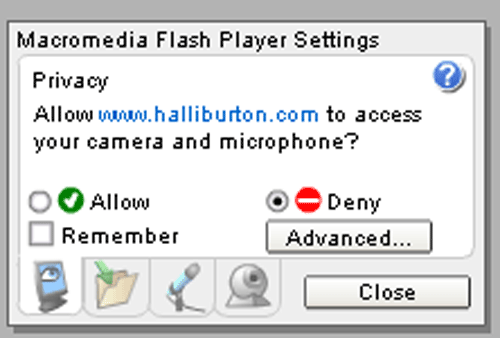I have been to Kitiloplautriv and have returned to write about it.
What is Kitiloplautriv?
"Kitiloplautriv," of course, is "Virtualpolitik" spelled backwards. Somehow, yesterday, I stumbled into an inverse version of my own blog: "
Bozell's News Columns: A collection of weekly columns by L. Brent Bozell III." I'm certainly aware of the fact that there is an alternative conservative universe out there in cyberspace, but this was the first time that I had an actual matter-meets-antimatter moment in the blogosphere. On Bozell's page there were digital rhetoric stories about many of the exact same electronic genres that I cover: e-mail, websites, videogames, databases, etc.
Bozell is often associated with the
Parents Television Council, although regrettably he writes about a lot more than television. I first decided to seek out Bozell's prose after I heard that he had called for my colleague
Ian Bogost of Georgia Tech
to be fired. Bogost specializes in games with public agendas: he writes about serious games, but he also writes about the political and civic messages embedded in commercially distributed entertainment-oriented games.
Bogost had raised Bozell's ire by positing that the
Super Columbine Massacre RPG, which is available for free downloads online, could be viewed with some critical distance as a form of commemoration of the event, albeit one which offends those who wish to preserve the ineffability of violent collective trauma. After
an online review, Bogost was interviewed in
an article in the Rocky Mountain News, which was subsequently
picked up (and distorted) by news services.
In this opinion piece, Bozell castigated the anonymous developer of the Columbine online role-playing game and anyone who could be associated with it.
Sadly, this genius has allies among the video-game enthusiasts. Ian Bogost, a professor at Georgia Tech who specializes in video-game criticism, is ecstatic about re-enacting Columbine. "I think the effort is brave, sophisticated, and worthy of praise from those of us interested in video games with an agenda," he declares. The game isn't fun, but it's challenging, he writes, "conceptually difficult. We need more of that." But the game doesn't reward you for putting your gun down and going home. It rewards you and calls you brave for killing innocent teenagers. Why Georgia Tech hasn't fired this idiot is a disgraceful mystery.Of course, this isn't the first time that Bogost has come to the defense of a game that has been dismissed as lacking in any redeeming social value.
Grand Theft Auto: San Andreas earned condemnation in the
House and
Senate and spurred further regulatory legislation on videogames in the
Baca Bill. However, Bogost argues that the game can serve the purpose of public health if its pro-social ideology of exercise and its critique of the dependence of the underclass on fast food culture is recognized.
Because he projects the
ethos of a concerned parent and an advocate for nonviolence, it's an odd claim to say that Bogost is "ecstatic about re-enacting Columbine." From the standpoint of critical theory, it's also just plain wrong. Bogost argues that the game resists mimesis and draws attention to its own representational strategies. For example, the game uses a very limited lexicon of graphic elements and inserts text that reminds the player that his or her experience of game play is not unmediated.
Others, including
GamePolitics, have already come to support Bogost's work, but I think it is worth pointing out that Bogost is not the only academic to explore the way that some games that seem to be socially repugnant can actually encourage forms of critical reflection that serve the public good.
James Paul Gee, in his books on
What Videogames Have to Teach Us about Learning and Literacy and
Why Videogames Are Good for Your Soul, has argued eloquently for the pedagogical benefits of first-person shooter games, particularly those that allow you to play from an opposing, seemingly subversive position.
Henry Jenkins of MIT compares
Grand Theft Auto to his own educational game about the American Revolution.
Joost Raessens examines the documentary function of videogames, which can be applied to historical shooter games like the Columbine game or
JFK Reloaded.
Listing these people may give Mr. Bozell more targets for his incoherent
fatwa, but he also might learn something from actually reading their books, since they are much better writers than he is.
As someone who teaches written composition for a living, what I find annoying about Bozell's crank commentary for the official-sounding
Media Research Center is how he veers off target from a promising topic or rhetorical issue. Moreover, he has the luxury of writing his blog entries once a
week rather than once a
day! For example, Bozell begins with how
embarrassing private e-mails from a news producer were leaked to the public, but then his argument degenerates into nonsequiturs and gratuitous insults of female anchors. In another piece, he compares the
NSA's enormous database of phone calls from millions of citizens to a Clinton administration database that only tracked a limited number of visitors to the White House and their contributions to the Democratic Party, without acknowledging that one "database" has a different functionality -- and thus a different meaning -- from another.
In my favorite case of how he drops the digital rhetoric ball, check out how he starts with the
website of the Democratic Party and its "Republican Culture of Corruption" page, but he never actually
analyzes either the visual or the verbal techniques of the website in any substantial way. Instead he suddenly makes a jab at Patrick Kennedy, who has inspired a
videogame called "Drive Like a Kennedy,"
reviewed by Bogost, which Bozell actually might enjoy.
Labels: digital parenting, game politics















